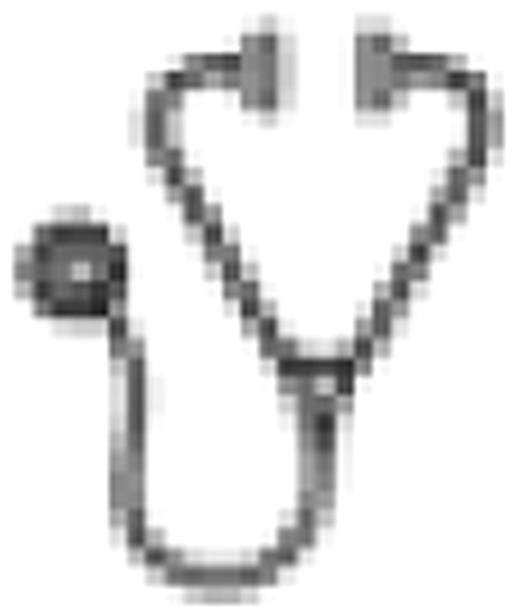Abstract
Abstract 3999
A prospective, multicenter European Registry (EUMDS) for newly diagnosed IPSS low and intermediate-1 MDS was initiated under the auspices of the EuropeanLeukemiaNet. As data on health-related quality of life (HR-QoL) in newly diagnosed MDS patients are rare, the EQ-5D (European quality group 5 dimensions) descriptive system was introduced in this evaluation. The EQ-5D evaluates HR-QoL in five dimensions: mobility, self-care, usual activities, pain/discomfort, anxiety/depression at level 1 (no problem), 2 (moderate problem) or 3 (severe problem, unable to do). Moreover HR-QoL is rated by the patient on a visual analog scale (VAS) ranging from 0–100. In 683 out of 800 EUMDS patients (85.4%) analyzed so far, the EQ-5D score has been applied at initial presentation. Median age was 72.8 yrs (18.7-95.3) with 61.9% male patients. Whereas a reduced performance status as defined by a Karnofsky Index <-70 was detected in 18.7%, an impaired QoL was observed in a greater proportion of MDS patients. Using EQ-5D moderate or severe problems (level 2 & 3) were described in a relevant proportion in the dimensions mobility (43.9%), self-care (13.2%), usual activities (34.1%), pain/discomfort (51.3%) and anxiety/depression (41.2%). The dimensions mobility (p<0.0001), self-care (p=0.004), usual activities (p=0.01) and pain/discomfort (p=0.012) were clearly age-dependent, as no problem (Level 1) was detected in 72, 95, 60 and 52% of 50–59 years old MDS patients (n=60) in the respective dimensions, was 67, 95, 79 and 59.8% in 60–69 years old persons (n=147), whereas the cohort of 70–79 years old (n=279) as well as the 80+ group (n=174) revealed a lower percentage of 55 (39), 83 (81), 65 (57) and 48 (38) %, respectively. Similarly VAS-based self-reported health was lower in elderly patients; mean score 74 (sd 17.1) in 50–59 yrs, 76.4 (18.2) in 60–69 yrs, 67.6 (20.1) in 70–79 yrs and 64 (19.2) in 80+ yrs (p<0.0001). Pronounced sex differences were observed, as no problem (Level 1) was detected in usual activities in 69.6 in male vs 60% in female (p=0.007), in pain/discomfort 53.6 vs 40.9% (p<0.0001) and in anxiety/depression 66.6 vs 46.2% (p<0.0001). The gender effect was less pronounced in the dimension mobility (level 1: 59.1% m vs 51.2% f; p=0.08) and self-care 88% vs 84.6% (ns). The EQ-5D status was reported in 11 different countries contributing to this registry and ranged from 61.4 (VAS score maean)(sd 21.4) in France to 78.0 (sd 15.9) in Romania (p<0.0001). Restrictions in QoL were more often seen in anemic patients, as hemoglobin (Hb) values were significantly lower in patients with restrictions in mobility (Hb 9.8 vs 10.4 g/dl (mean), (Odds ratio 0.82 (0.74-0.90, 95% CI, p<0.0001), in self care (8.7 vs 10.2; OR 0.72 (0.63-0.83) p<0.0001), in usual activities (9.5 vs 10.4; OR 0.75 (0.68-0.83) p<0.0001) and in pain/discomfort 9.9 vs 10.4 (OR 0.86 (0.79-0.94, p=0.001). Comorbidities as assessed by Sorror index were detected in a substantial proportion of patients and were associated with a reduced QoL: Sorror index 0: VAS 74.4 (mean), SD 19.2; 1 (72.3; 18.9); 2 (68.6; 18.2) and 3+ (63.3, 20.7) (p=0.01). This study represents the first prospective analysis of health-status and QoL in a large cohort of newly-diagnosed MDS patients, revealing restrictions in self-reported health in a relevant proportion of MDS patients. In the evaluation of QoL in MDS age- and gender effects as well as possible cross-cultural differences should be considered. EQ-5D value sets, representing the general population from European countries will allow comparisons to be made between the general population and patients with MDS and will contribute to understand the impact of MDS on QoL. EQ-5D will be prospectively re-assessed 6-monthly in all patients continuing follow up in the registry.
Stauder:Celgene: Research Funding. Fenaux:Celgene: Honoraria, Research Funding; Novartis: Honoraria, Research Funding; Janssen Cilag: Honoraria, Research Funding; ROCHE: Honoraria, Research Funding; AMGEN: Honoraria, Research Funding; GSK: Honoraria, Research Funding; Merck: Honoraria, Research Funding; Cephalon: Honoraria, Research Funding. Hellstrom-Lindberg:Celgene: Membership on an entity's Board of Directors or advisory committees, Research Funding. Bowen:Novartis: Honoraria, Membership on an entity's Board of Directors or advisory committees, Research Funding; AMGEN: Honoraria; Celgene: Honoraria, Research Funding; Chugai: Honoraria, Research Funding.

This icon denotes a clinically relevant abstract
Author notes
Asterisk with author names denotes non-ASH members.

This feature is available to Subscribers Only
Sign In or Create an Account Close Modal